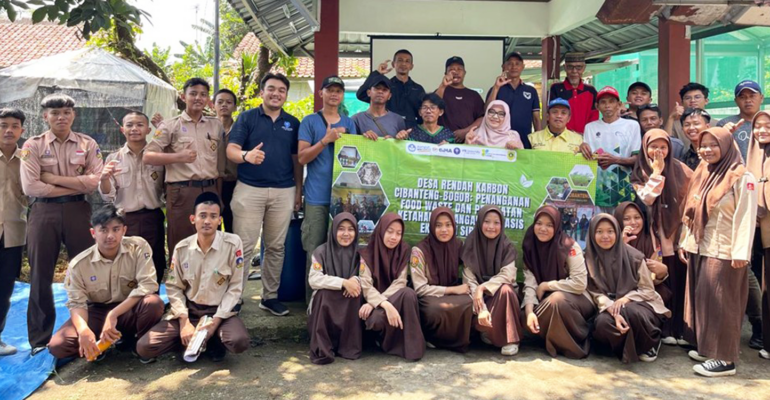IPB University’s Bima Team and Poktan Kebon Kopi Mandiri Conduct Maggot Cultivation Training in Cibanteng Village

Dr Meti Ekayani, IPB University lecturer from the Department of Resource and Environmental Economics (ESL) and the team conducted training activities on maggot cultivation and practice of making fermented maggot feed located in Cibanteng Village, Ciampea District, Bogor Regency, West Java (14/9).
This training is part of the Research and Community Service Information Base (BIMA) program aimed at the Kebon Kopi Mandiri Farmer Group (Poktan). With this training, members of the farmer group are expected to know how to cultivate maggot and make fermented maggot feed to reach the target of 100 kg of maggot per month.
“The cultivation of black soldier fly (BSF) maggot is part of a sustainable effort to create a low-carbon village and circular economy. It is hoped that this model of multi-stakeholder cooperation with active community participation can be applied in other villages,” said Prof Deffi, a representative of the BIMA IPB University team.
The activity was attended by the Chief of Gapoktan Cibanteng Village, Poktan Kebon Kopi Mandiri, Darut Tafsir Islamic Boarding School, Agrobio Fish, and the Directorate of Agromaritime Community Development of IPB University. In this activity, the participants were very enthusiastic about participating in the training.
Herlan, a member of the BIMA team representing IPB University students, hopes that the knowledge gained from this training can be developed throughout the Cibanteng Village area to support the reduction of food waste in accordance with sustainable development goal (SDGs) 12, namely ensuring responsible consumption and production patterns.
Dandi Rivaldi Sudradjat and Muhammad Salman Rifqi, experts in BSF maggot cultivation who were present as trainers, said, “Waste should be solved within the community. Maggot BSF is one of the miracles that can answer that problem, even processing it into value-added products.”
This, they said, proves that maggot cultivation is very easy to do by the community and there are economic benefits if marketed. His explanation made the residents more aware of the advantages of maggot cultivation. (Her/Rz) (IAAS/NAU)



